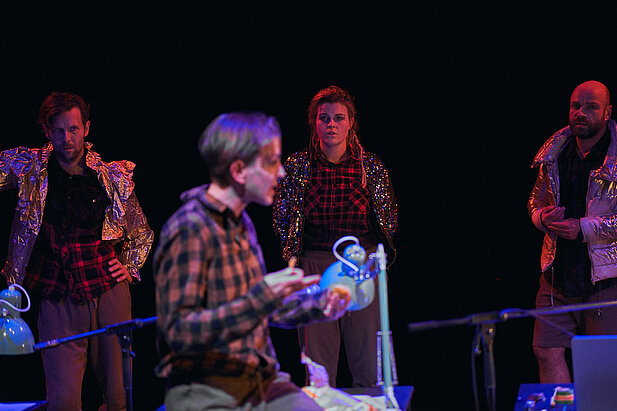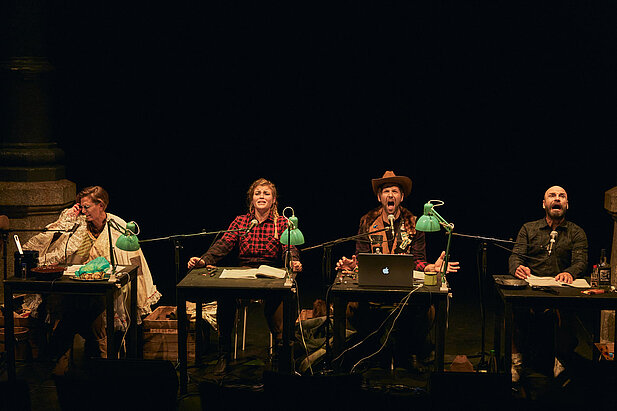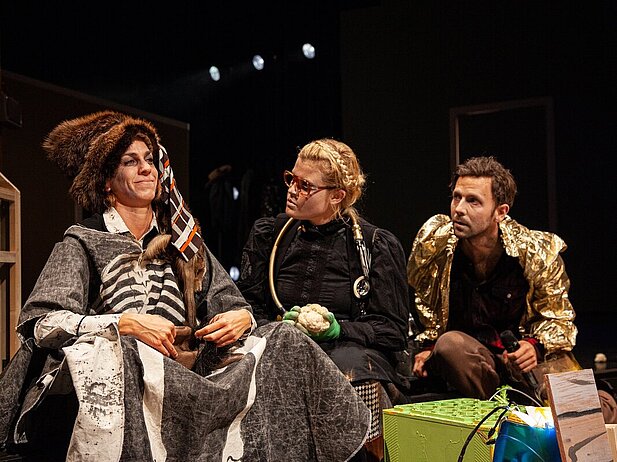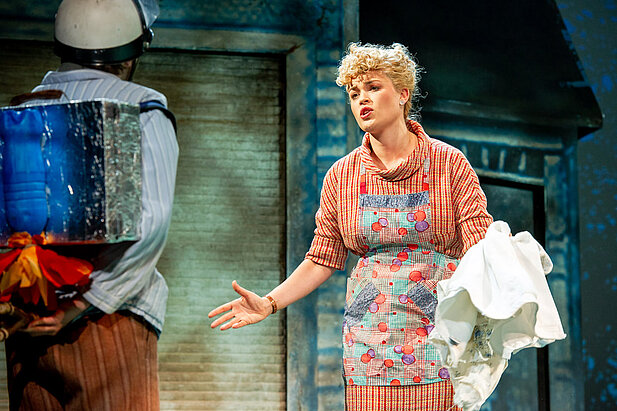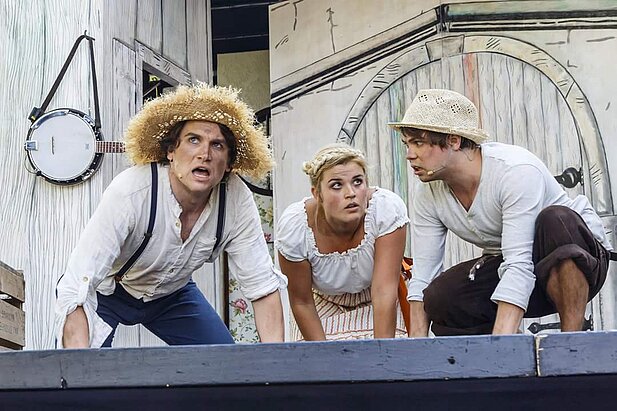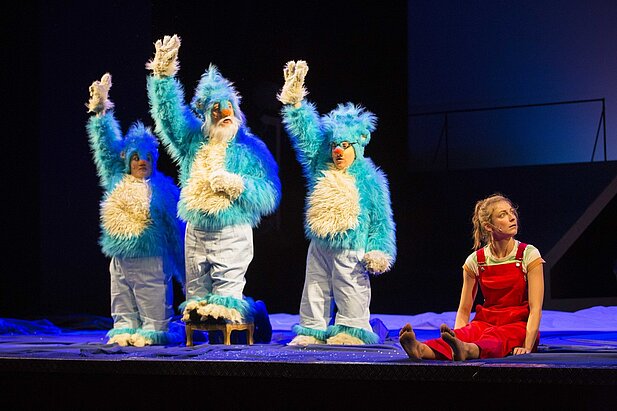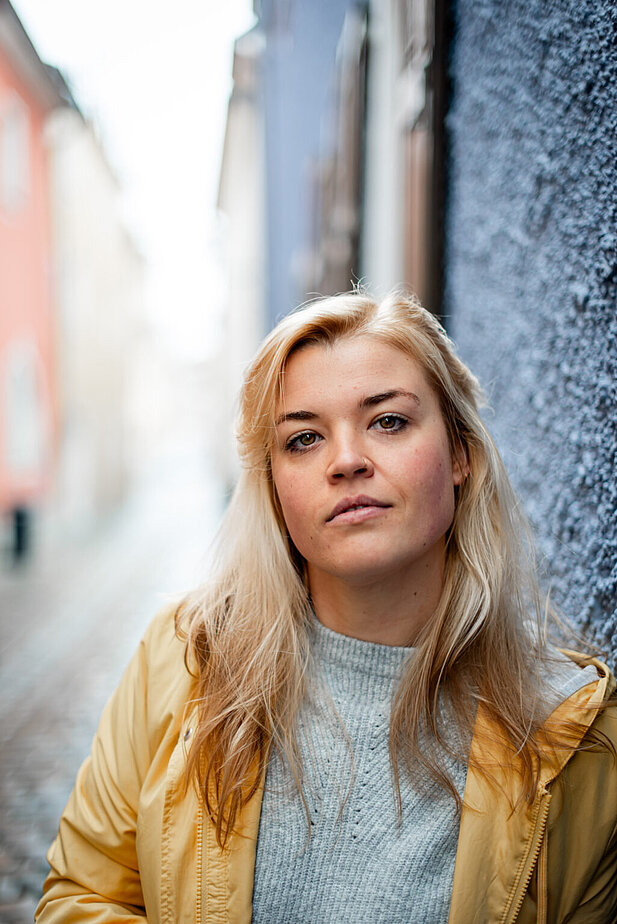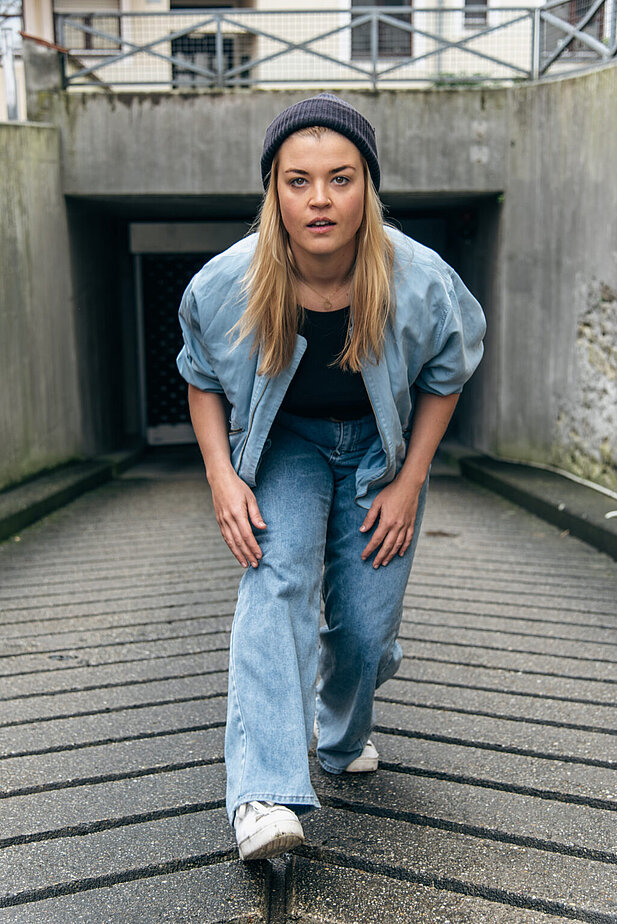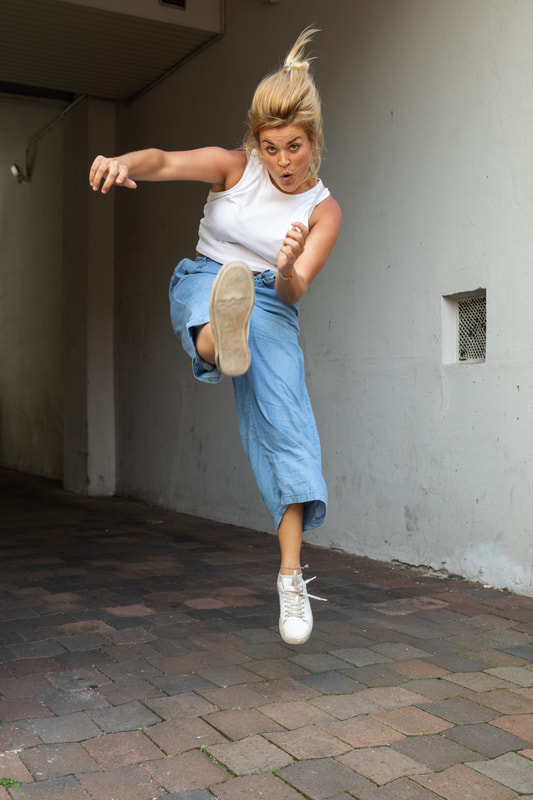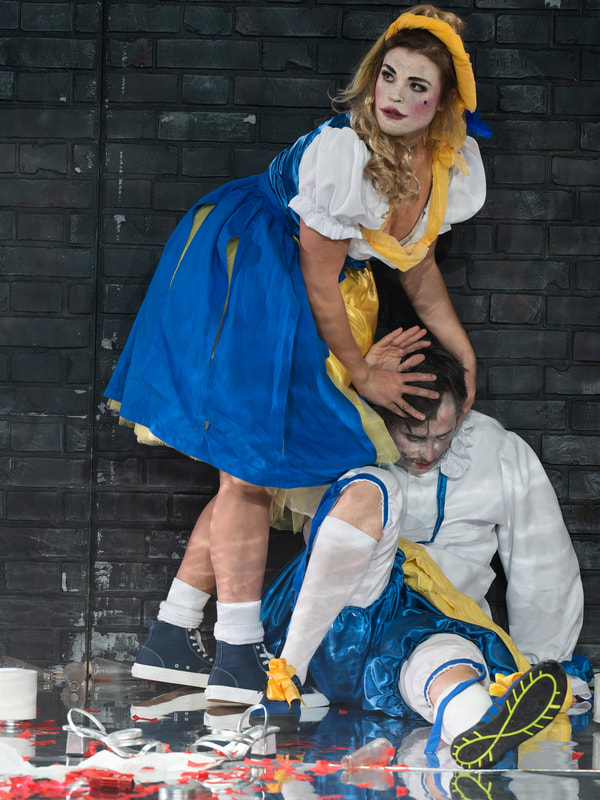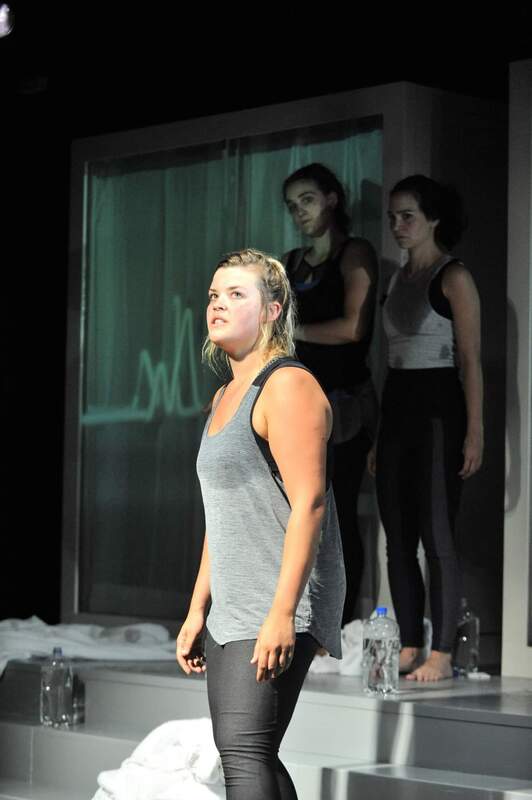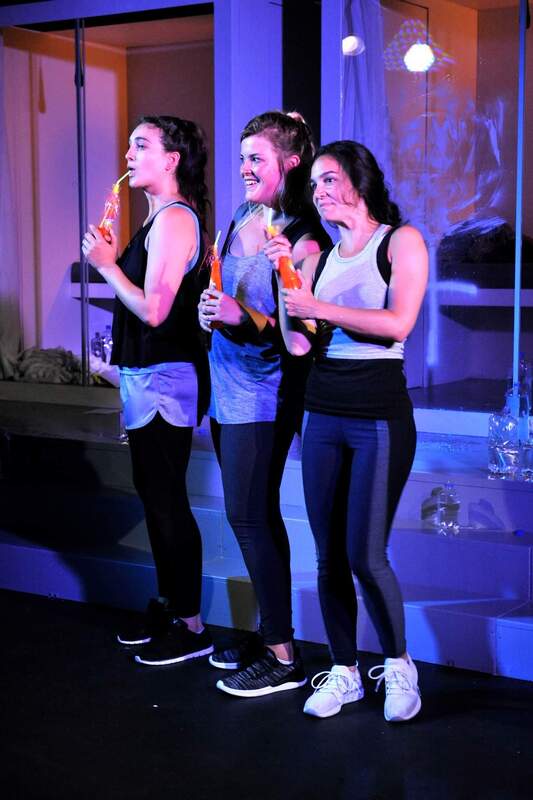What led her to acting? Why does she keep returning to the Kulturmobil's mobile stage? And what is the connection between theater education, directing and acting for her? In our interview, actress Henriette Heine gives us an insight into her journey from Lower Bavaria to the stage, screen and microphone. She talks about formative experiences, artistic versatility and why she can't imagine her work without depth, diversity and social relevance.
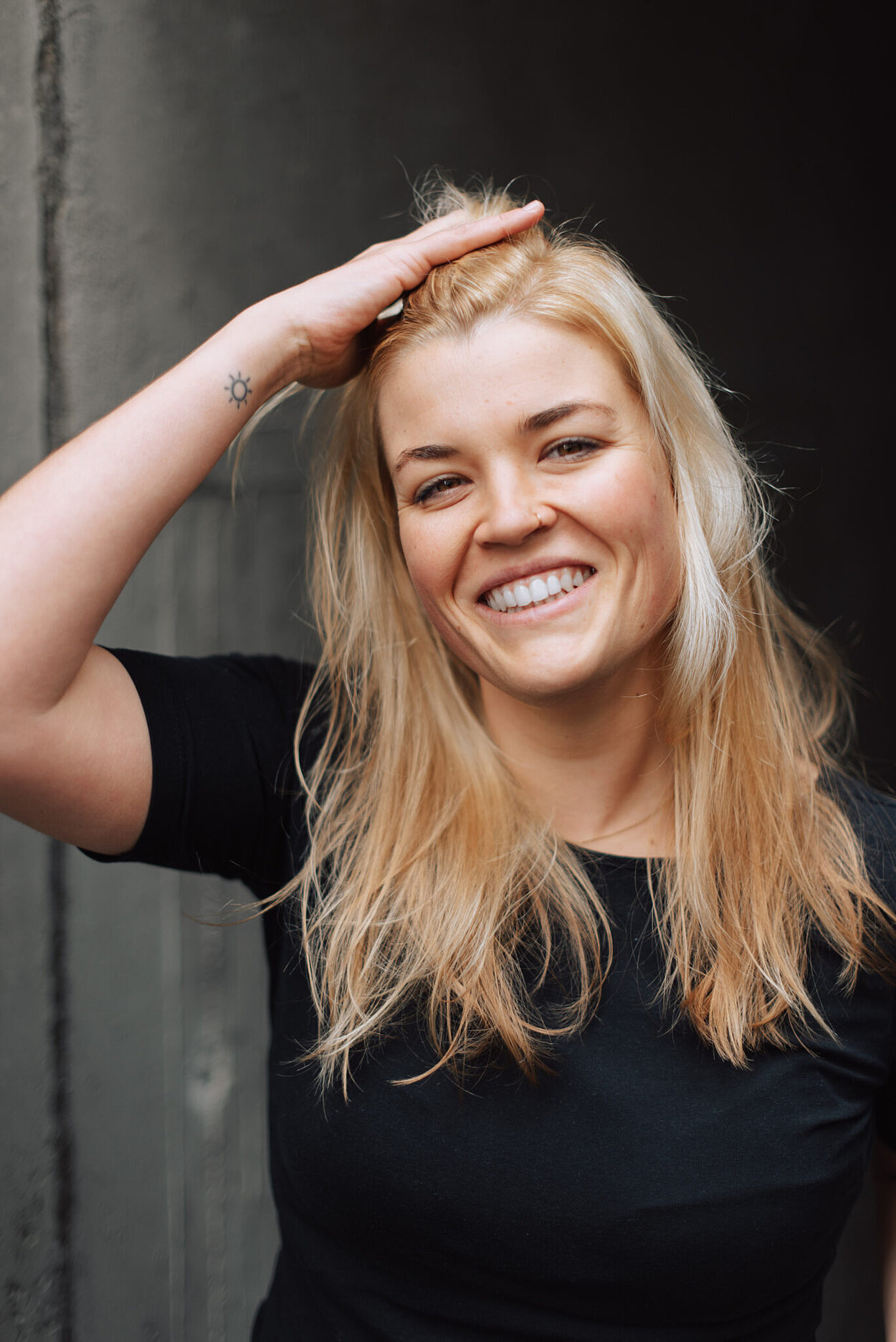
Henriette Heine
Actress, speaker & theater educator
Henriette is a freelance actress, speaker and theater educator. Growing up in Lower Bavaria, her first steps led her to the Theater an der Rott and the Kulturmobil. Today she works in a variety of roles between stage, camera and microphone.
It is just as important whether the theater, the city, the team, the conditions and the development opportunities are convincing. Every employer boils with water - and you should never lose heart.
Henriette Heine
Hello Henriette, what originally brought you to acting? Was there a formative moment or a person who inspired you?
I was definitely particularly inspired by my father, who always acted and wrote a lot himself.
You come from Lower Bavaria - to what extent has your home influenced your artistic career?
The team at the Theater an der Rott in Eggenfelden was very formative for me in my early days and some of the colleagues I met there are still very important people today. Performing at the Kulturmobil Niederbayern was also a great pleasure. I always enjoy returning to the mobile stage.
You have worked both on stage and in front of the camera. What fascinates you about both media, and is there one that is particularly close to your heart?
I would never want to do without either again. In film, I usually play characters that are very close to reality. I like to be inspired by my surroundings. On stage, you can often be freer and more creative. And of course the direct feedback from the audience is something very special. In film, it can take a good year before you see the result - but you can play much more subtly and delicately without the audience in the last row having to be able to see it.
You also work as a theater teacher and director. What does this work mean to you and how does this knowledge help you in your work as an actress?
I really like looking at things from many different angles. As an assistant director, I was often the hub behind the scenes - that gave me a lot of valuable insights. As a director, it's exciting to work directly with the actors and pursue a clear vision.
Theater pedagogy helps me to question myself and my acting. And it's also a great thing in other ways: you accompany a group on their way to a common goal and experience how they grow.
Many of your roles are complex and emotionally demanding. How do you prepare for a character in order to give them depth?
I take a lot of time to get to know my character. In theater, this usually happens together with the team, in film it tends to happen alone. I work intensively with the script and try to draw as much as possible from it. And I also take a lot from myself or my immediate surroundings.
The cultural landscape is constantly changing. What challenges do you currently see for theater professionals and actors in Bavaria?
The shift to the right is a huge problem (not just in Bavaria), as is the difficult financial situation. Since theater or culture in general always has an important social role, I think it's all the more important to perform as broad a program as possible. Theater education is also playing an increasingly important role, as it not only promotes personality and cultural understanding, but also empathy and social interaction.
What role do networks and platforms such as social media play for you in your artistic work?
I think sharing and being connected is immensely important and always helps. Social media can support this and there are many great projects that gain reach as a result. Nevertheless, I think it's important to question these platforms critically.
Your voice can be heard in a wide variety of formats and roles - from games and radio plays to image films. How do you get your voiceover jobs? Is it targeted acquisition, recommendations or does a lot of it come from your network?
It's very different. Some jobs were advertised and I applied for them, others came through recommendations.
What advice would you give to young people who want to get into acting? What experiences or attitudes have particularly helped you on your own path - and is there anything you wish you had known earlier?
That's a very nice question and I could talk about it for hours. I think it's important to find out who you are, how you want to do this job and also how you don't want to do it. Especially at the beginning, you often ask yourself whether you are convincing or good enough, but it is just as important to find out whether the theater, the city, the team, the conditions and the development opportunities are convincing. Every employer is different, they all boil with water and you should never lose heart.
Is there a project close to your heart that you definitely want to realize in the future?
I'm looking forward to the familiar and the unknown. It would be great if I could continue to work in as many different ways as before.
The Bavarian cultural and creative industries are vital, cooperative, polyphonic and relevant to the future. We introduce you to Bavarian players. What is their business model? What drives them?
Would you also like to answer a few questions and be part of our "bayernkreativPORTRAIT" campaign? Then send us an email to kontakt@bayern-kreativ.de with the keyword "bayernkreativPORTRAIT".
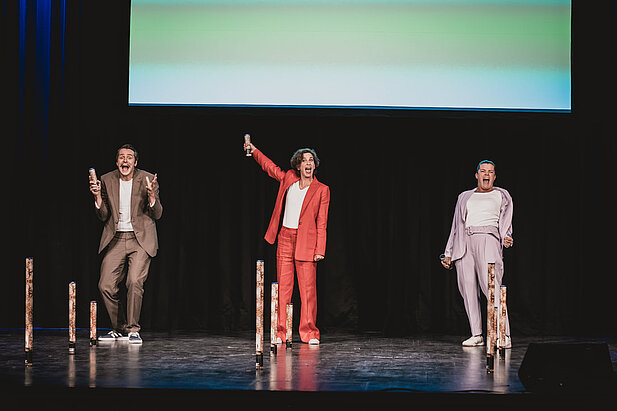
![Apollo-Theater Siegen: Schacht:Licht [Der Berg]](/fileadmin/_processed_/8/c/csm_apollo-theater-siegen-schacht-licht-der-berg-foto-rolf-k-wegst-_32541d9595.jpg)
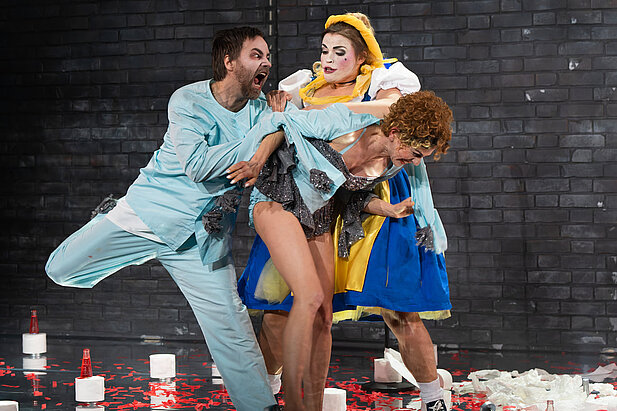
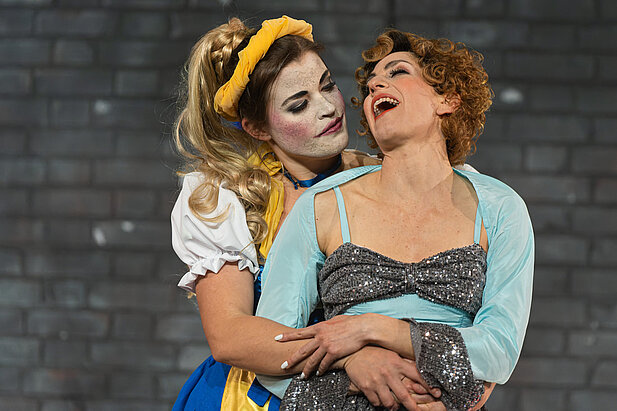
![Bruchwerk Theater: Schacht:Finsternis [Die Zwerge]](/fileadmin/_processed_/a/d/csm_bruchwerk-theater-schacht-finsternis-die-zwerge-foto-rolf-k-wegst-_8896f46c2e.jpg)
